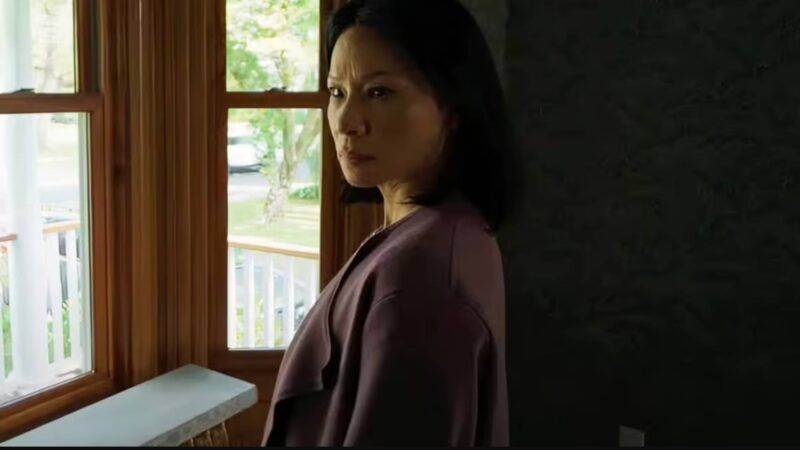Steven Soderbergh's Presence Is a Stylish, Experimental Ghost Story
In this POV haunted house film from the Ocean's 11 director, the camera plays the ghost.

Steven Soderbergh never settles down.
The director, who helped fuel the independent film revolution in the 1990s before hitting it big with the Ocean's 11 films, has always treated filmmaking as an entrepreneurial proposition, innovating not only in terms of technology—he was one of the first major filmmakers to adopt digital video—but also financing and distribution, with quasi-experimental films like Bubble, one of the earliest movies to get a simultaneous theatrical and home streaming release.
He's also restless to the point of comedy: Since announcing his "retirement" in 2013, he's directed at least one TV show and nearly a dozen feature films, several of which have an experimental element.
His latest, Presence, is mostly an exercise in style and technique: It's a ghost story told from the point of view of the ghost—as in literal point of view (POV), like in a first-person video game. Every scene is captured in a single, long, continuous, flowing camera movement, held at eye level, representing what the ghost is "seeing." It's like watching 85 minutes of GoPro footage from the afterlife. As a formal exercise, it mostly works. As a drama, it doesn't live up to its potential.
The story tracks the domestic troubles of a suburban family who moves into a beautiful old house. The mom is involved in some sort of shady business at work. The dad is having trouble holding it together. The teenage son is a jerk, and the teenage daughter is going through a difficult time after the death of a friend. The ghost observes their distress—their interactions, their arguments, their moments of lonely sadness—and at key moments intervenes with ghostly acts.
It's an intriguing concept, executed with competence and occasional flair: Soderbergh, who also served as the director of photography under the pseudonym Peter Andrews, gives the ghost camera a distinctive character—curious, shy, and perhaps a little bit sad—that makes you want to know more about it and its intentions. He's said the film is based on an experience he had living in a house he believed was haunted, and he's clearly given the ghost character, and its willowy perspective, a fair amount of thought.
The same can't be said for the film's human characters. The family's deepening crisis also draws you in, but only up to a point, since the setup never fully exploits the promise of the concept.
The screenplay, by longtime Hollywood hand David Koepp, is enjoyably short and succinct, but doesn't develop the domestic drama quite enough, leaving gaps and loose narrative threads as it focuses on a fairly mundane, thriller-esque plot involving a sketchy teenage drug dealer from the local high school.
Koepp wrote both the original Jurassic Park and the first Sam Raimi Spider-Man film, so like Soderbergh he has experience with big-budget, mass-appeal material. But in recent years he's turned his attention to smaller projects, including Kimi, also directed by Soderbergh, a pandemic-set thriller in the mold of Rear Window that remains one of the best films about lockdowns.
Presence isn't as strong as Kimi, but both films share an interest in containing characters and constraining the narrative by setting the story primarily in a single location. You get the sense, in both, that what Koepp really wants is to write Agatha Christie-style locked-room murder mysteries. But the puzzle he foregrounds in Presence just isn't quite interesting enough on its own. Soderbergh's roving ghost of a camera is a delight, but the story just doesn't have enough weight—one might say enough presence—on its own.
But that's the way it goes for Soderbergh, who, when he announced his (non) retirement said, "I just don't think movies matter as much anymore, culturally." That sense seems to have freed him, and he now treats movies as disposable confections. Sometimes they work. Sometimes they don't. But they're always interesting. And inevitably, there's another one on the way: Soderbergh and Koepp have another thriller, Black Bag, due out in March.


Show Comments (6)